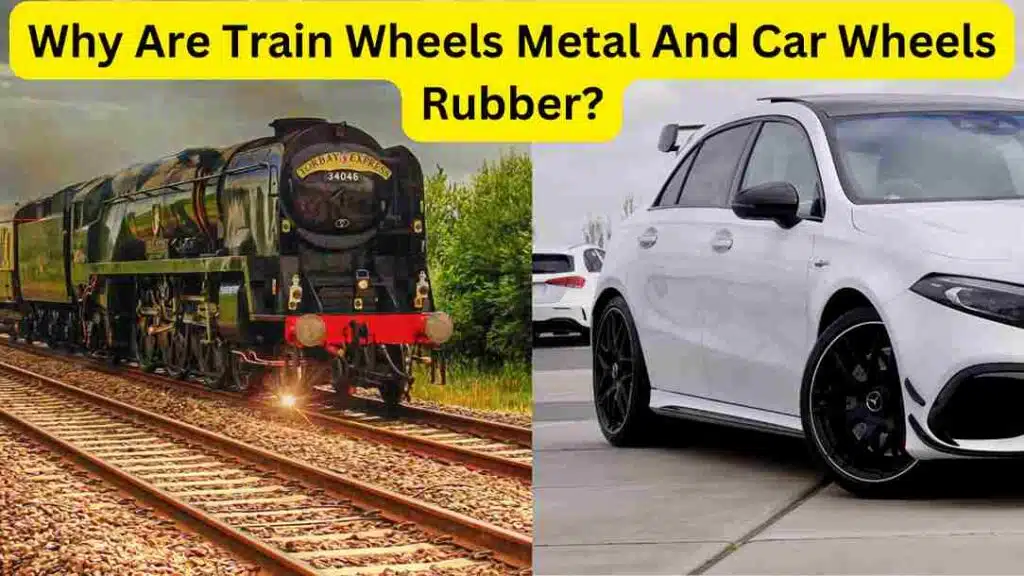Why Are Train Wheels Metal And Car Wheels Rubber?
Train wheels are made of solid metal like iron or steel to handle heavy loads and long trips. This makes them tough and durable for trains. On the other hand, car wheels use rubber to give a smooth and comfy ride. Rubber absorbs bumps and helps cars grip the road better, making driving more accessible and more enjoyable.

The Nature of Train Wheels
Train wheels are designed to bear enormous loads, as trains are much heavier than cars due to their size and the cargo they transport. A typical freight train can weigh thousands of tons, necessitating the use of sturdy materials like metal. Metal wheels provide the necessary strength and durability to support these immense weights without deformations or failures.
Reduced Friction
Metal wheels on train tracks also reduce friction, allowing trains to move smoothly along the tracks with minimal resistance. This is crucial for energy efficiency, as less friction means less energy wasted during transportation. Additionally, the reduced friction helps maintain the tracks’ integrity over time, preventing excessive wear and tear.
The Role of Rubber in Car Wheels
Rubber is an excellent shock absorber, making it the ideal choice for car wheels. When vehicles travel on uneven road surfaces, rubber wheels absorb the vibrations and impacts, providing a smoother and more comfortable ride for passengers. This ability to dampen vibrations reduces the strain on both the vehicle’s components and its occupants.
Noise Reduction
Rubber wheels significantly reduce road noise, contributing to a quieter driving experience. The rubber’s elasticity helps absorb the sound generated by tires rolling on the pavement. In contrast, metal wheels can produce louder and more noticeable noises, which could be disruptive and less comfortable for passengers.
Engineering Considerations
Metal train wheels are better suited to handle thermal expansion, which occurs when materials heat up and expand. Trains can generate substantial heat due to the friction between their wheels and the tracks, especially during braking. Metal wheels can expand without compromising structural integrity, ensuring safe and reliable performance.
Versatility of Rubber
Rubber car wheels offer versatility and adaptability. They can grip the road surface effectively, providing stability and traction, especially during turns and on wet or slippery roads. The flexibility of rubber helps cars navigate varying road conditions, ensuring safety for the driver and passengers.



Leave a Reply